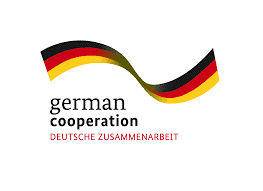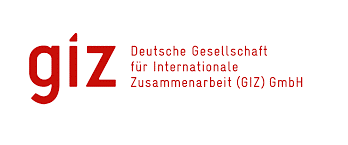Rethinking Plastics – Circular economy solutions to marine litter
Objective
-
€9.9mBUDGET
-
15/05/2019PROJECT START
-
36 monthsDURATION
The “Rethinking Plastics” project is cofinanced by the European Union and the German Federal Ministry for Economic Cooperation and Development (BMZ) and is jointly implemented by GIZ and Expertise France. It aims to support the transition towards a more circular economy and the reduction of plastic and marine litter in seven East and Southeast Asian countries via capacity building actions, exchanges of good practices and the financing of pilot projects.
Plastic pollution in the marine environment, a global challenge
The use of single-use plastic has increased exponentially in recent years with urbanisation, economic development and changes in consumption and production patterns. At the same time, waste management systems continue to be inefficient, for example, in terms of selective sorting, collection, recycling, energy recovery and waste disposal, especially for packaging.
These trends largely contribute to marine pollution, which poses a growing threat to marine ecosystems and the fishing sector, as well as to the tourism sector.
Marine waste, which includes abandoned fishing gear, affects some 800 species in marine and coastal environments. Today, 60 to 90% of marine waste is made up of plastic, especially single-use plastic products and packaging. In 2010, it was estimated that 5 to 13 million tonnes of plastic waste is dumped in the oceans every year. Microplastics are of particular concern, as their potential for toxicity, the level of which is still relatively unknown, may be very high. As they contaminate various levels of the food chain and drinking water, they are potentially dangerous for the environment and human health, especially for the endocrine system.
East and Southeast Asia are among the regions mostly affected by plastic pollution in oceans and by its impacts on biodiversity. In 2017, Asia accounted for 50% of global plastic production, China alone produced 29%. By comparison, the European Union (EU) accounted for 18.5%, where selective sorting and the recycling rate have increased in its member countries in recent decades. However, part of this plastic waste from the EU is exported to several East and Southeast Asian countries.
Consequently, greater cooperation between the EU and its partners in the region, in the context of the “Rethinking Plastics” project, will bring about mutual opportunities on these issues.
Developing a more circular economy to address this challenge
Most actors from governments, the private sector, the academic world and civil society believe that a transition towards a circular approach to plastic waste management is necessary. East and Southeast Asian countries, as well as the European Union (EU), are already part of multilateral agreements, such as the resolutions of the United Nations Environment Assembly concerning marine pollution, waste management and single-use plastic, as well as the G20 Action Plan on Marine Litter, adopted in 2017 under the German Presidency. Working for a transition towards a more circular economy is also one of the ways to achieve the Sustainable Development Goals (SDGs).
A number of national and local initiatives have been launched in East and Southeast Asia to reduce the pollution of oceans by plastic. In 2018, the Heads of State and Government of ASEAN member countries, but also China and Japan, adopted the East Asian Leaders’ Statement on Combating Marine Plastic Debris. In June 2019, ASEAN member countries subsequently adopted the Bangkok Declaration on Combating Marine Debris, in particular via a more circular economy.
In 2018, the European Commission presented the ambitious European strategy for plastics in a circular economy. This strategy is part of a European action plan launched in 2015, which aims to ensure that all plastics packaging placed on the European market is reusable or recyclable by 2030. To achieve this, the strategy provides for improved plastic waste prevention and management, an expansion of the recycling capacity and an increase in demand from the recycled plastics market. This strategy also includes strengthening the EU’s international cooperation on the circular economy and preventing marine pollution.
Furthermore, in 2019, the EU adopted a new directive banning the use of certain single-use plastic products by 2021 (including straws, cotton buds, plates and cutlery). This European directive places greater responsibility on producers, increases selective collection targets and raises awareness of single-use plastic products.
Rethinking Plastics, a programme implemented by GIZ and Expertise France
The “Rethinking plastics – Circular economy solutions to marine litter” programme aims to address the challenge of plastic waste and marine pollution in East and Southeast Asia, by establishing close cooperation between the European Union (EU) and partner countries. It has six components:
1) Support the political dialogue between the EU, regional organisations (e.g. ASEAN) and partner countries on the issue of plastic production and waste management, in particular in terms of the environment, fishing and industry;
2) Improve plastic waste management, by setting up a waste hierarchy, in particular through extended producer responsibility (EPR) and the implementation of deposit systems;
3) Promote responsible consumption and sustainable plastic production, in particular via eco-design (to increase the product reuse and recycling rates) and the introduction of standards for recycled plastic and alternatives to plastic;
4) Reduce plastic waste from marine activities, in particular by improving the management of waste from ships in ports, and through agreements with fishermen for them to pick up waste and implement actions to avoid dumping fishing gear at sea;
5) Strengthen green purchasing policies, in particular via exchanges of good practices and training between peers with Japan and Singapore;
6) Implement awareness-raising actions targeting public actors and citizens on issues related to plastic consumption and its impacts on the environment.
The implementation started in mid-May 2019, with a 6-month start-up phase which aims to:
• Identify the specific needs of each country, working closely with local and national stakeholders (firstly the ministries of environment and transport) and regional stakeholders;
• Develop an action plan for each country and have it validated by the counterparts.
During the start-up phase and also throughout the implementation, the local, national and regional counterparts will be closely involved in the various activities. Synergies with other existing initiatives will also be promoted, in order to avoid overlaps and maximise the impacts.
Developing a legal framework for Extended Producer Responsibility
The EPR Policy Brief is a framework document for decision-makers to address the key principles and share international experiences on EPR mechanisms and legal frameworks. The EPR Toolbox aims to facilitate knowledge exchange and enhance the development of EPR systems worldwide. It contains detailed training materials on EPR, practical country examples and a set of FAQs. Institutional and operational actors, among them public authorities, producers, collectors, operators or recyclers, can now enhance their knowledge about EPR for packaging with the Vietnamese translation of the EPR Toolbox, which was developed by the PREVENT Waste Alliance.
|
A joint implementation mechanism for GIZ and Expertise France
The GIZ/Expertise France regional project coordination team is based in Bangkok. National teams deployed by GIZ are located in China, Indonesia, the Philippines and Thailand and a team by Expertise France in Vietnam, based in Hanoi and Ho Chi Minh City.
GIZ, the German international cooperation agency, is responsible for:
• Achieving all the outcomes in China, Indonesia, the Philippines and Thailand for the geographical component;
• Implementing the outcomes 1, 2, 3 and 6 at regional level.
Expertise France, the French international technical cooperation agency, is responsible for:
• Achieving all the outcomes in Vietnam;
• Outcomes 4 and 5 at regional level
For further reading
• Circular Economy in Singapore: Comparative Policy Study, EU-Singapore
 Find out more: beatplasticpollution.eu/rethinking-plastics
Find out more: beatplasticpollution.eu/rethinking-plastics



